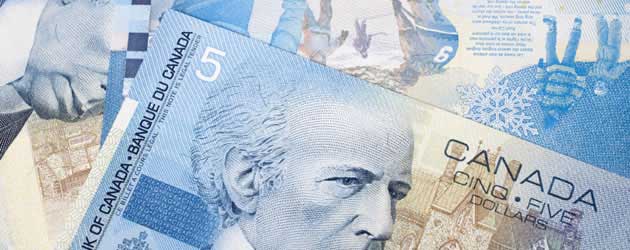 The Pound Sterling to Canadian Dollar (GBP/CAD) exchange rate was trading in the region of 1.8325 on Tuesday having trended in a narrow range for much of the day.
The Pound Sterling to Canadian Dollar (GBP/CAD) exchange rate was trading in the region of 1.8325 on Tuesday having trended in a narrow range for much of the day.
Last week GBP/CAD volatility was caused by Canada’s inflation figures.
The data showed that the inflation accelerated at a faster-than-anticipated pace in June, with the headline figure climbing at its most rapid rate since the beginning of 2012.
Consumer Price Inflation came in at 2.4% year-on-year, 0.1% higher than May’s annual reading.
After the report was published the Pound to Canadian Dollar (GBP/CAD) exchange rate dipped and hasn’t really recovered ground since.
Over the course of yesterday UK data showed that the nation’s public finance deficit was little changed and that the Confederation of British Industry’s measure of Business Optimism declined by more-than-expected.
The reports had little impact on the appeal of the Pound as investors were largely looking ahead to tomorrow’s influential UK news.
On Tuesday the US Dollar to Canadian (USD/CAD) exchange rate eased higher following the publication of on-target US core inflation figures.
The US report detailed a 0.3% month-on-month increase in consumer prices and a year-on-year figure of 2.1%. Both results were in line with expectations and lent support to pro-rate hike supporters.
The report adds weight to expectations that the Federal Reserve will introduce its first increase in borrowing costs in mid-2015.
According to currency strategist Camilla Sutton; ‘There has been a bit of back and forth with expectations for the first interest rate hike with it being pulled forward and then pushed back.’
Last week Fed Chairwoman Janet Yellen added fuel to the rate hike fire by issuing her most hawkish comment on the issue to date. Although Yellen stated that borrowing costs would be held at historic lows until long after the tapering of stimulus was concluded, she did imply that an impressive improvement in US economic performance could bring the timeline forward.
Rising crude oil prices were also partly responsible for the Canadian Dollar’s gains.
In the hours ahead considerable Pound to Canadian Dollar (GBP/CAD) exchange rate movement could be caused by the publication of minutes from the Bank of England’s latest policy meeting and Canadian retail sales figures for May.
If the minutes show that one or more members of the BoE’s Monetary Policy Committee voted in favour of increasing interest rates the Pound could jump. However, if the minutes show that all nine members believe interest rates should stay on hold Sterling losses are likely.
Canada’s retail sales report is expected to show that sales increased by 0.6% in May, month-on-month, almost half the monthly increase registered in April.
Sales less-autos are believed to have increased by 0.3% on the month, also down from a figure of 0.7% recorded in April.
As there are no other major Canadian reports to look out for this week, global economic developments and commodity prices will be largely responsible for driving Canadian Dollar movement.
Additional volatility in the Pound to Canadian Dollar (GBP/CAD) exchange rate could be sparked on Wednesday by the CBI’s Reported Sales figure for the UK.

Comments are closed.